5 Biggest Golf Swing Mistakes And How To Fix Them
In this video, PGA pro Alex Elliott discusses five of the biggest golf swing mistakes and how to fix them

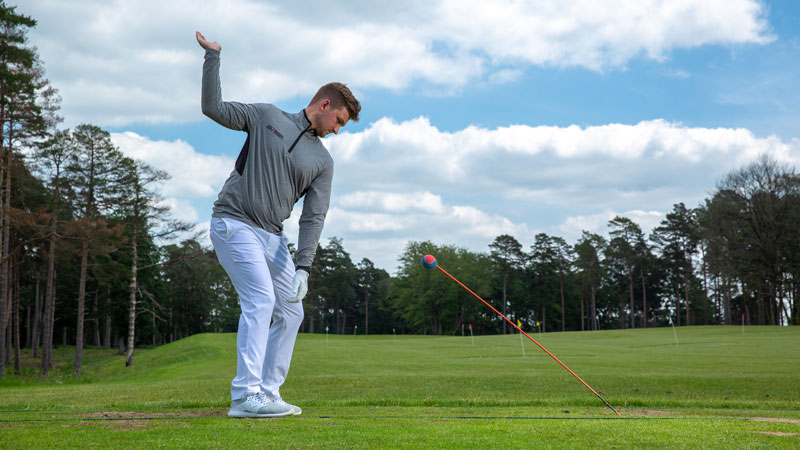
If you're struggling hitting slices or hooks it's likely you're falling foul of one of the common golf swing mistakes. But never fear, you aren't alone and help is on its way. We've teamed up with PGA pro Alex Elliott in this video and article to tackle some of biggest issues that plague the everyday golfer so you can hit the ball straighter, farther and, most importantly, start enjoying your time on the course more.
So, without further ado, here are five of the biggest golf swing mistakes and Alex's tips on how to fix them...
Golf swing mistakes: The grip
Golf is hard enough without attempting to navigate yourself round a course with a bad grip. To check whether this is the source of your struggles, first assess whether you're holding the club in the palm of your hand. If so, you're limiting the amount of power and control you can deliver at impact, making it very difficult to hit good golf shots with any sort of consistency.
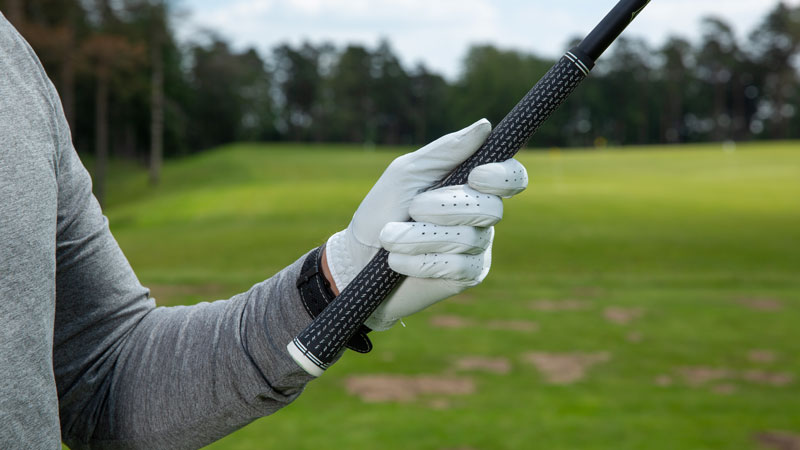
If you've got it in the fingers then look down at your left hand (right for left-handers) to see how many knuckles are in view. If it's more than three or less than two, that's something you want to remedy.
RELATED: Biggest driving mistakes and how to fix them
A strong grip (more than three knuckles) will have you struggling with hooks and a weak grip (less than two knuckles) can cause the ball to slice. Neither are desirable so you want to edge it back towards neutral over time.
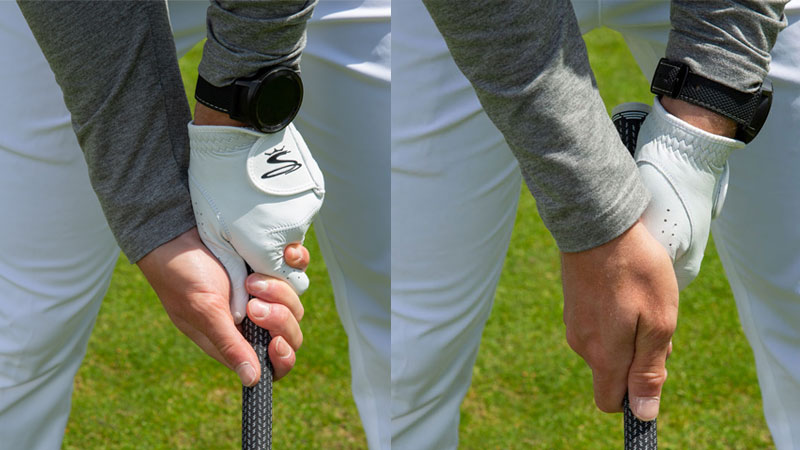
To set the perfect grip, hold a club by the shaft with your right hand if you're right-handed and then wrap the fingers of the left hand around the grip as Alex demonstrates in the video. Roll the thumb over so you've got it securely held before sliding the other hand into place.
Subscribe to the Golf Monthly newsletter to stay up to date with all the latest tour news, equipment news, reviews, head-to-heads and buyer’s guides from our team of experienced experts.
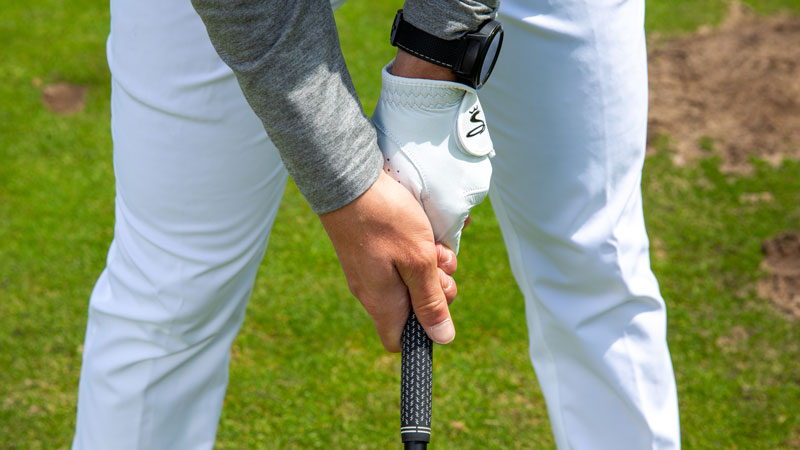
If done correctly, both lines created between the thumbs and forefingers should point towards the right-hand side of your chest as shown above.
Alignment
Something the best players in the world work on religiously yet the recreational golfer often neglects is alignment. And it's so easy to do. However, let it go wrong and it can cause endless headaches.
An easy mistake to make is to think your body should be aiming at your target. If you're trying to sling in a draw this might work, but when flighting it straight you want the body to run parallel to the club-to-target line.
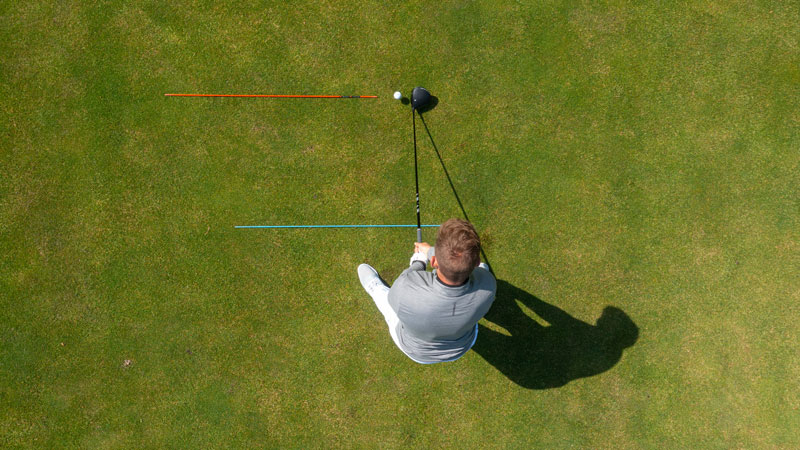
When at the range, always set two alignment sticks on the ground as Alex does until it becomes habit. This will ensure you're set-up position is consistent, giving you the best chance to execute. Alignment sticks are great for this as they are one of the best golf training aids on the market and their uses don't stop there.
If struggling to take this onto the course, aim the line on your ball at the target and use that as a guide for how the body should be positioned.
Slicing
The slice is undoubtedly the golfer's arch nemesis. It's detrimental effects are felt particularly with the driver in hand as it results in a shot that lacks distance and consistency and can lead to many packing the clubs away for good.
RELATED: Best drivers for slicers
If you're a slicer, think of this tennis analogy next time you're heading to the practice ground. With or without a club, imagine you're hitting a topspin forehand and really emphasise the move.

Do it a number of times then try to recreate the feeling when hitting a shot. It's not an instant fix - nothing is - but over time this will help you straighten up your slice and maybe even have you hitting some draws. Wouldn't that be nice?
The takeaway
If you don't start the swing well, it's likely compensations will have to be made later on, and that's never a good thing. Therefore, it's vital to nail the takeaway. And whether you take the club away inside, outside or out of sync with the body, Alex has a brilliantly simple drill guaranteed to help.
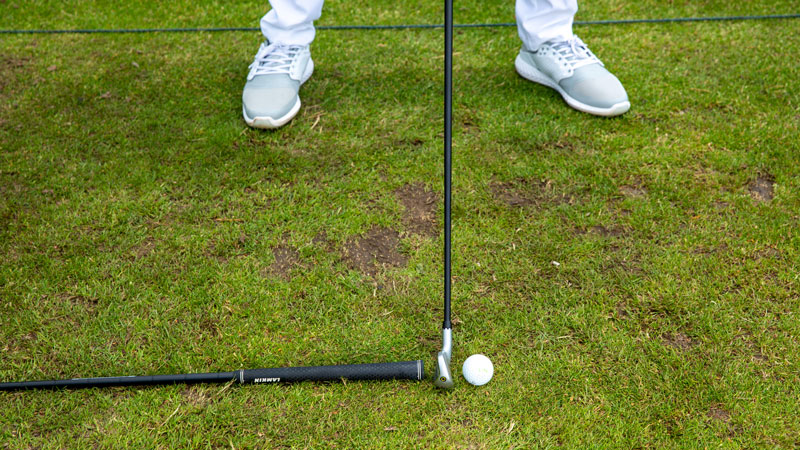
As shown above, place a club on the ground pointing towards the target with the grip end behind the ball. From there, set up as if you're going to hit a shot and work on taking the club back in unison with the body. If done well, you should move the club on the ground well out the way (below).
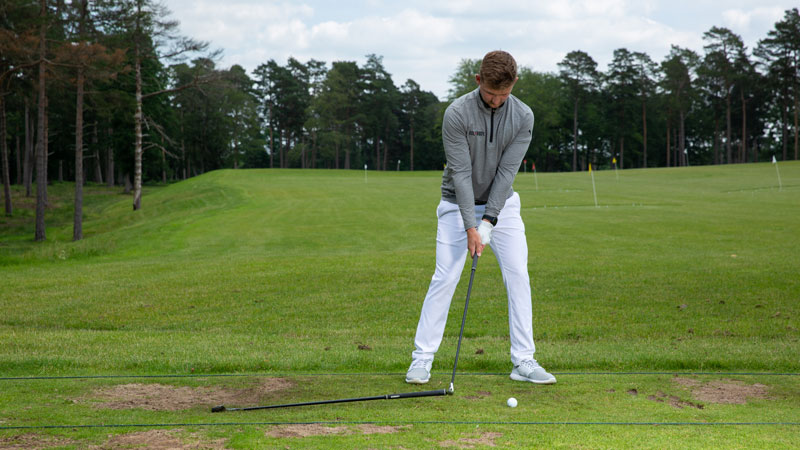
Check out the video to find out exactly what we mean by this.
Posture
Last but not least is the posture. Specifically, standing up in the downswing is something many golfers have a habit of doing. And it leads to inconsistent strikes and a really inefficient club delivery.
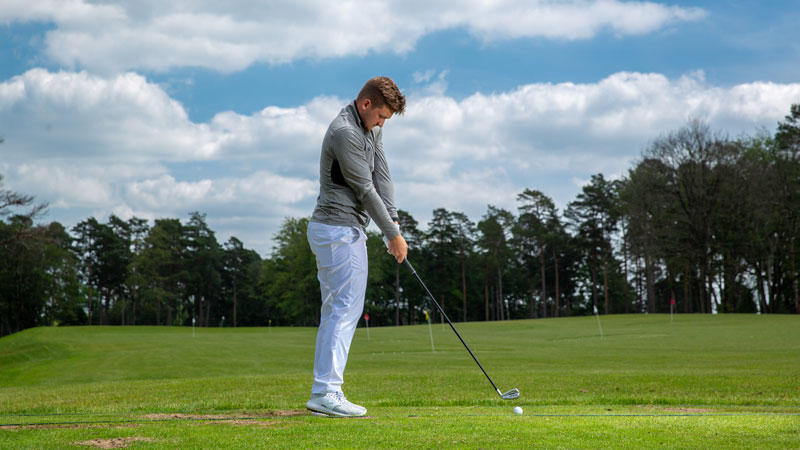
A drill to hone a far better move can be done using your golf bag or even a wall at home. With a club across the chest, turn to the top, ensuring your back right pocket remains in contact with whatever it is you're using. Crucially, you want to do the same with opposite pocket on the through swing.
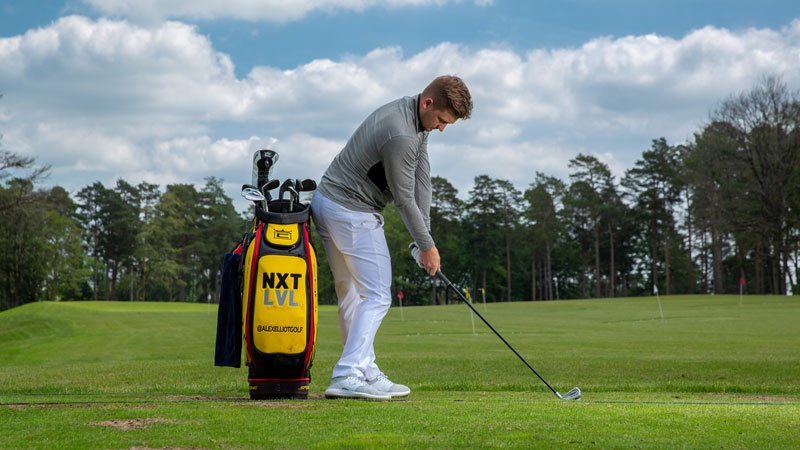
This will ensure you're retaining good body angles throughout the shot, which will help you compress the golf ball far better, leading to crisper strikes and extra distance.
The great thing about this drill is it's a non-technical fix to address a technical flaw that will develop a feel you can use for the rest of your golfing days.

Location: Mottram Hall
Alex spent a great deal of time learning the game from fellow northwest golfer, Andrew Murray, who was a European Tour regular from 1979 to 1995. He spent three years on the European Tour caddying for Andrew’s son, Tom, before taking his PGA qualifications. His passion for the game and personality in front of the camera has helped him to create a thriving social media platform on Instagram and YouTube, where he offers a whole host of tips and advice to help viewers shoot lower scores.
Most significant influences on your teaching:
Mike Bender's book, 'Build The Swing Of A Lifetime', which I read during my PGA qualifications. He uses so many different tools to help students deliver the club better when hitting the golf ball. Andrew Murray, too. He helped form the way I interact with golfers and simplified what can be a complex game for a club golfer.
Advice for practice:
I like to get students to work in sets of five golf balls – three drills shots to two course shots. The drill shots have no consequence, but with the two course shots, I ask the student to create a green or fairway and go through a full routine.
Greatest success story:
One of my students hadn’t played golf for ten years - he'd lost his love for the game. After watching my online Instagram and YouTube content, he came for several golf lessons and has now joined a local golf club. Knowing I've helped get someone back into golf... you can't beat that.